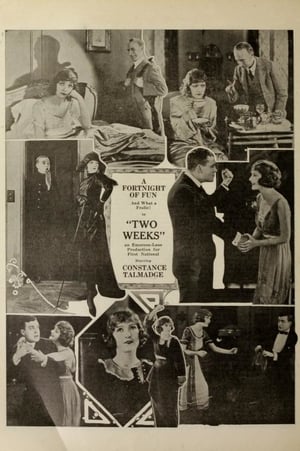

The Eyes of Science(1930)
The optical company Bausch & Lomb of Rochester, New York, contracted Watson and Webber to create this corporate industrial film to showcase the company’s extensive catalog of lenses and other optical instruments, displaying their practical applications in industry and everyday life. The Eyes of Science easily straddles the fields of avant-garde and industrial filmmaking, making both a fascinating object of form and style, as well as a highly educational, entertaining, and informative piece of film and industrial history. Originally 45 minutes.
Movie: The Eyes of Science
Video Trailer The Eyes of Science
Similar Movies
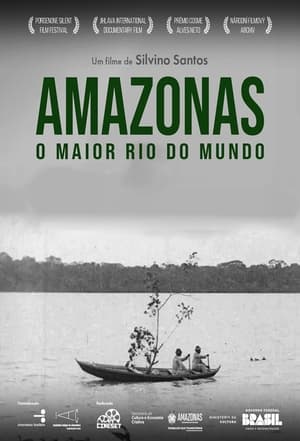 0.0
0.0Amazon: Longest River in the World(pt)
Documentary by Portuguese Silvino Santos, about the Amazon, its flora, fauna, its inhabitants and among other wonderful images from the beginning of the 20th century with alternating close-up shots of caimans, jaguars and tropical flora with footage of Indigenous rituals--including some of the earliest known moving images of the Indigenous Witoto people--and longer sequences showcasing the region’s extractive industries: rubber, the Brazil nut, timber, fishing, even the egret feathers that were a staple of women’s fashion at the time.
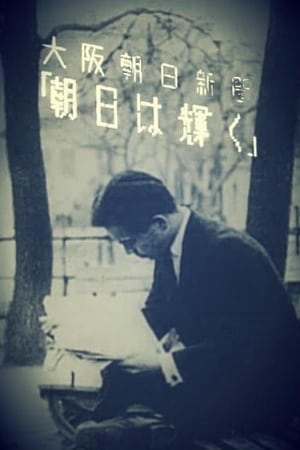 5.5
5.5The Morning Sun Shines(ja)
The Morning Sun Shines is a fiction-documentary film by Kenji Mizoguchi and Seiichi Ina. The film is a combination of a drama about a reporter, and documentary footage about newspaper production. Only 25 minutes of footage has survived.
O Índio - Ontem, Hoje e Amanhã(en)
The surviving 14 minutes of the original documentary about the Villas Boas expedition to the Amazonian tribes in Brazil.
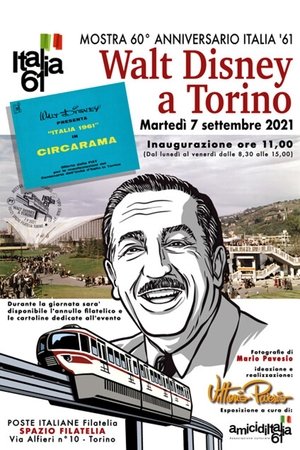 0.0
0.0Italia '61(it)
In 1961 Turin celebrated the centenary of the Italian unity with a large exposition which lasted from May till October of that year. One of the most popular exhibits was the 28 minute documentary ITALIA ´61 IN CIRCARAMA which was produced by the Walt Disney company and sponsored by the Italian automobile manufacturer Fiat. The spectacular views of this Cinerama tour of Italy (filmed with nine cameras) impressed more than two million visitors during the entire duration of that Turin Expo.
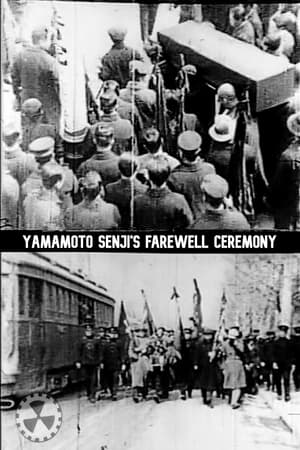 0.0
0.0Yamamoto Senji's Farewell Ceremony(ja)
Yamamoto Senji fought against the Peace Preservation Law in the Diet. On March 5, 1929 he was assassinated by the right wing. A farewell ceremony was held near the University of Tokyo. Prokino's Tokyo Branch shot the procession.
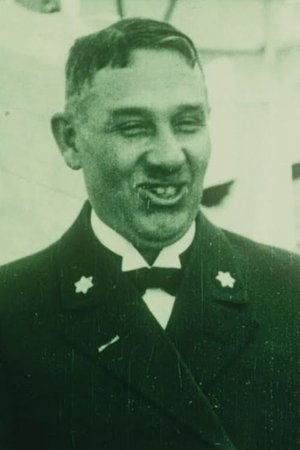 0.0
0.0Met het SS 'Patria' der Rotterdamsche Lloyd naar Nederlandsch Oost-Indië(nl)
Report of the departure of the SS Patria to the Dutch East Indies.
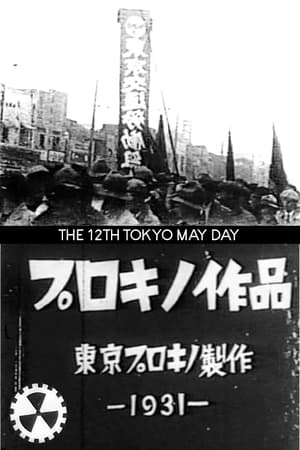 0.0
0.0The 12th Tokyo May Day(ja)
On May 1st, unions all over Japan celebrate May Day, the international day for workers. Workers gather together at parks and hold demonstrations and parades. May Day has its origins in a strike that occurred in the United States on May 1, 1886, a strike that called for an eight-hour workday. Prokino recorded the May Day every year from 1927 to 1932. Among these films, this work is the only one that has survived. However, only its first part has survived. The original film depicts the march to the Ueno Park where the rally was dismissed. Iwasaki Akira coordinated the entire Tokyo Prokino organization as it photographed the 1931 May Day celebrations. They shot in both 16mm and 35mm (other 35mm productions were planned, but this is the only one that achieved completion). A 16mm print was circulated around the countryside by mobile projection units, and a 35mm print was shown at Soviet film nights in Tokyo and Osaka.
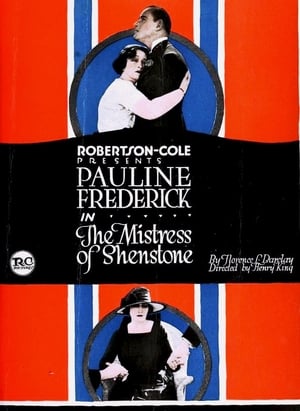 0.0
0.0The Mistress of Shenstone(en)
The husband of Lady Myra Ingleby is off fighting in the World War. She is devastated when Sir Derysk Brand tells her that her husband has been killed. The War Office gives her the details - Lord Ingleby was killed, not by enemy fire, but because of an error committed by one of his fellowmen, whose name is never to be disclosed. The grieving widow retreats to her Cornwall estate for a rest. Staying at the inn is a man known as Jim Airth, who carries a grief of his own.
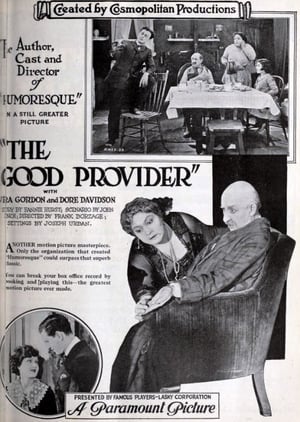 0.0
0.0The Good Provider(en)
A prosperous small-town peddler accedes to his family's wish to move from their secure existence to the uncertainty of New York City. It proves fruitless and eventually his kin sees the error of their ways and return to their true home.
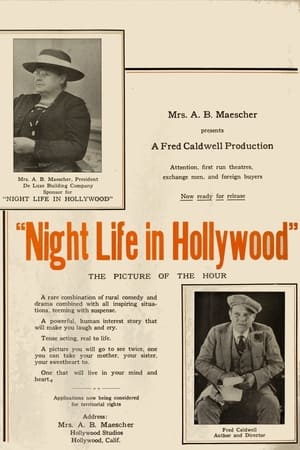 0.0
0.0Night Life in Hollywood(en)
A picture depicting the engrossing adventures of a small town youth in Hollywood and showing the intimate home life of some of the screen's greatest stars.
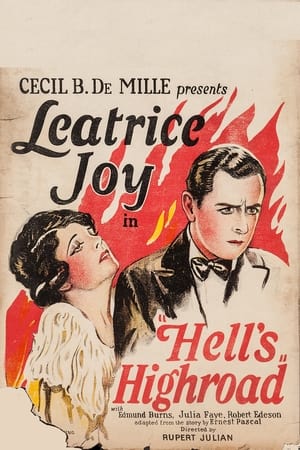 0.0
0.0Hell's Highroad(en)
Judy Nichols (Leatrice Joy), a poor girl from Chicago, has decided she cannot marry without money. Her sweetheart, Ronald McKane, a struggling civil engineer (Edmund Burns), is encouraging her to join him in New York, but she only goes when she is bequeathed an inheritance. Unfortunately, the amount adds up to less than ten dollars a week. When she meets banker Sanford Gillespie (Robert Edeson), she convinces him to help McKane out financially. Once McKane has become a success, Judy marries him, but then he becomes interested in another woman. Judy seeks revenge and asks Gillespie to ruin her estranged husband, offering him anything he wants in return.
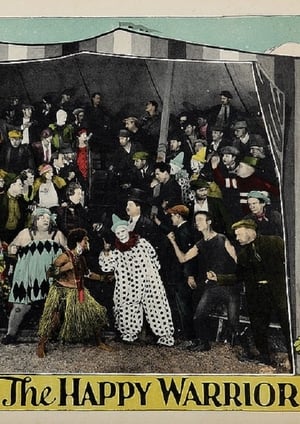 0.0
0.0The Happy Warrior(en)
Malcolm McGregor joins the circus and falls in love with Olive Borden but his life changes when he finds out he is a titled Lord.
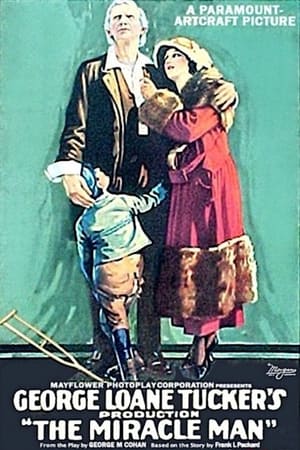 4.5
4.5The Miracle Man(en)
A gang of crooks evade the police by moving their operations to a small town. There the gang's leader encounters a faith healer and uses him to scam gullible public of funds for a supposed chapel. But when a real healing takes place, a change comes over the gang. Lost film, only the most famous scene has survived.
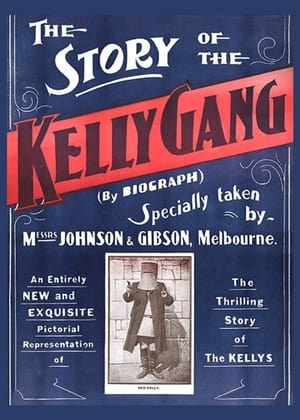 5.2
5.2The Story of the Kelly Gang(en)
Just as Galeen and Wegener's Der Golem (1915) can be seen as a testament to early German film artistry, The Story of the Kelly Gang (1906) symbolizes both the birth of the Australian film industry and the emergence of an Australian cinema identity. Even more significantly, it heralds the emergence of the feature film format. However, only fragments of the original production of more than one hour are known to exist, preserved at the National Film and Sound Archive, Canberra; Efforts at reconstruction have made the film available to modern audiences.
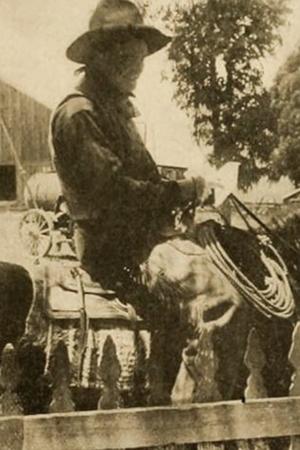 0.0
0.0Chip of the Flying U(en)
When he's fired from his bank job aimless Claude Bennett decides to head West. Once he gets a job as a cowboy on the Flying "U" ranch he restyles himself as Chip and discovers who he really is through a series of adventures.
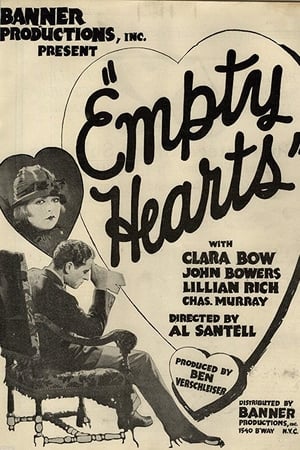 0.0
0.0Empty Hearts(en)
Milt Kimberlin is a down-on-his luck horse owner, but Rosalie, a cabaret performer (the lively and engaging Clara Bow), doesn't care -- she turns down the fancy jewelry offered by oily Frank Gorman for a wedding ring from Kimberlin. Even though his finances never improve, Rosalie sticks by her husband only to sicken and die in a garret. Kimberlin's luck changes almost overnight and he becomes incredibly wealthy.
The Fighting Cub(en)
A determined copy boy achieves his aspiration of becoming a journalist after unearthing the hideout of a criminal gang.
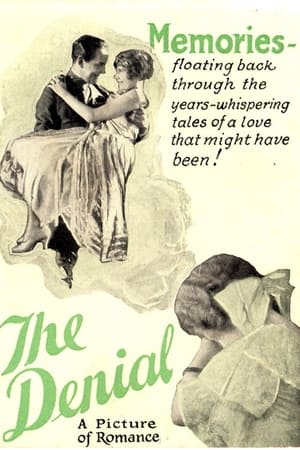 0.0
0.0The Denial(en)
When Dorothy wants to marry Bob (Robert Agnew), her mother, Mildred, forbids the match. Dorothy angrily asserts that Mildred might reconsider if her own mother had forbid her marriage. The rest of the film is a flashback, as Mildred recalls her own youth, when her dictatorial mother did forbid her to marry Lyman. Lyman enlisted with Teddy Roosevelt's Rough Riders to fight in the Spanish-American War, but was killed in battle.
Josselyn's Wife(en)
Only six months of marital bliss and Lillian Josselyn is filled with dread at the return of Pierre Marchand, her former lover, who left her to marry Ellen Latimer.

